The velocity - time graph of an ascending passenger order lift is given in figure. What is the acceleration of the lift:
(i) during the first two seconds ,
(ii) between 2nd and 10th second,
(iii) during the last two seconds. .
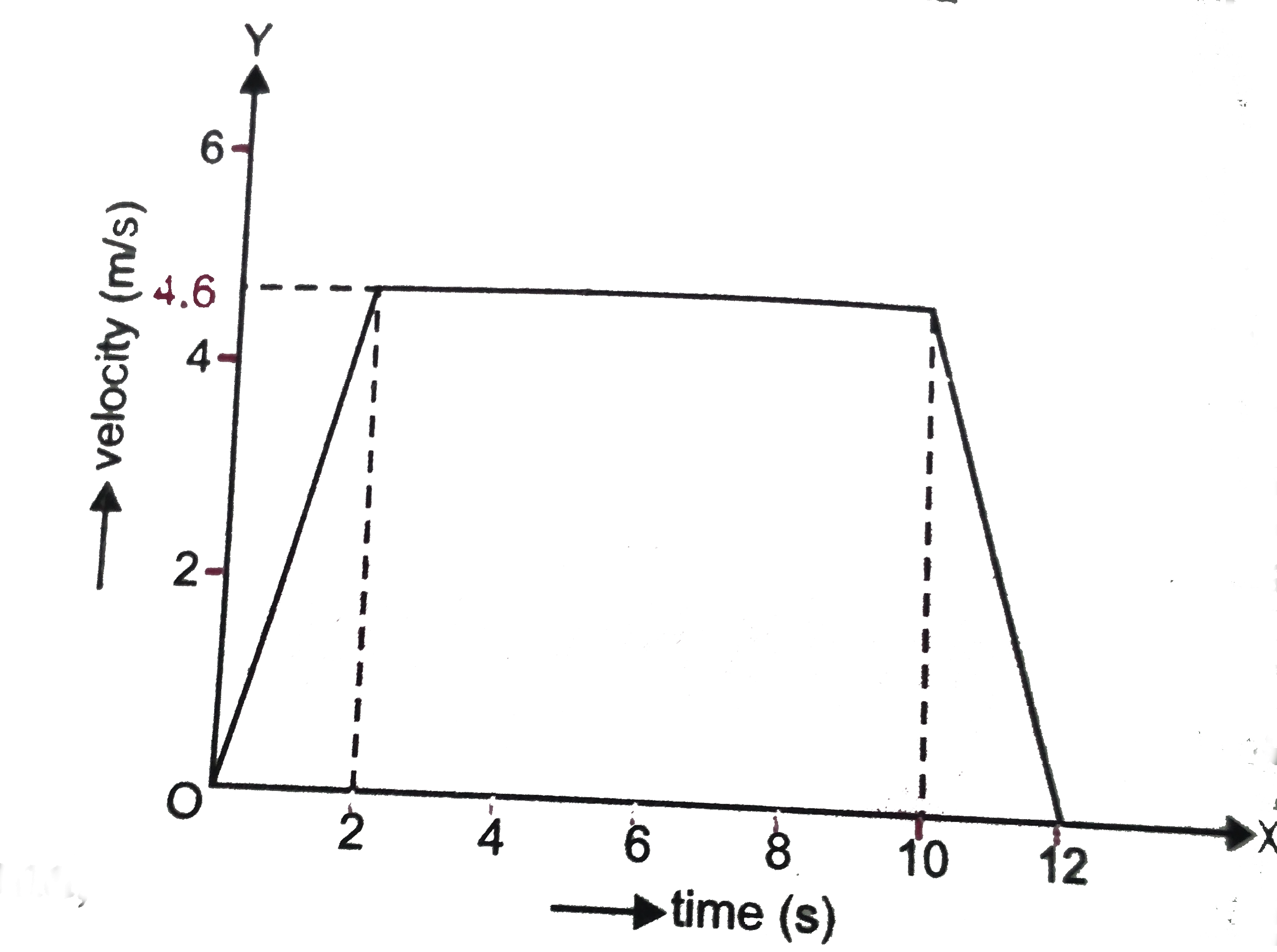
Video Solution
Text Solution
(i) 2.3 m/s2 (ii) Zero (iii) -2.3 m/s2
|
Updated on:21/07/2023
Related Playlists
- BOOK - LAKHMIR SINGH & MANJIT KAURCHAPTER - MOTION EXERCISE - NCERT BOOK QUESTIONS AND EXERCISES3videos
MOTION
- BOOK - LAKHMIR SINGH & MANJIT KAURCHAPTER - MOTION EXERCISE - MULTIPLE CHOICE QUESTIONS3videos
MOTION
- BOOK - LAKHMIR SINGH & MANJIT KAURCHAPTER - MODEL TEST PAPER 5EXERCISE - Section B2videos
MODEL TEST PAPER 5
- BOOK - LAKHMIR SINGH & MANJIT KAURCHAPTER - SOUNDEXERCISE - Value Based Questions20videos
SOUND
Similar Practice Problems
- Question 1 - Select One
The velocity - time graph of a particle of mass 10 kg is shown in the figure. The net work done on the particle in the first two seconds of the motion is
 A−9300JB12000JC−4500JD−12000J
A−9300JB12000JC−4500JD−12000J - Question 1 - Select One
The velocity-time graph of a car moving along a straight road is shown in figure. The average velocity of the car in first 25 seconds is
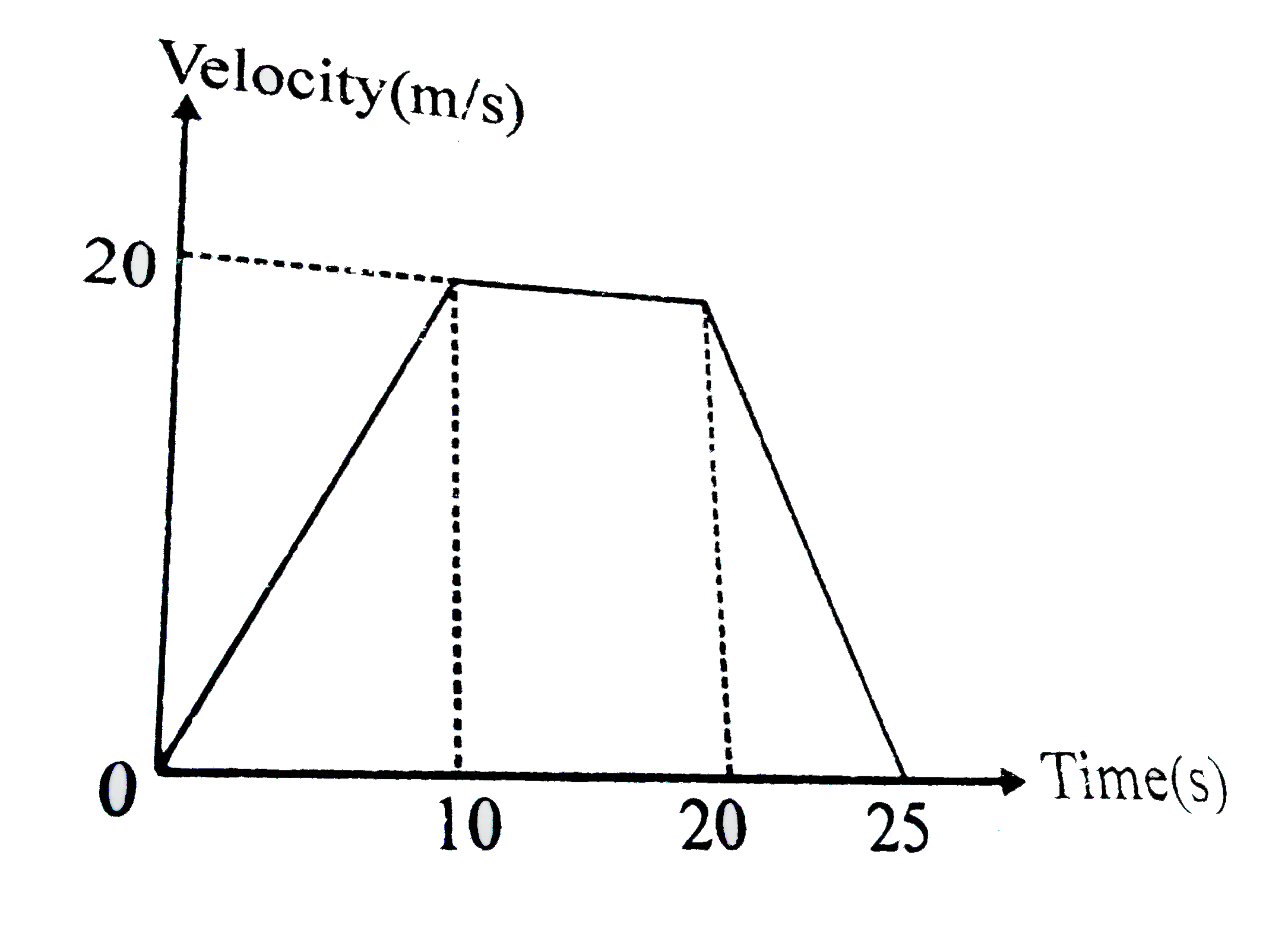 A20m/sB14m/sC10m/sD17.5m/s
A20m/sB14m/sC10m/sD17.5m/s - Question 1 - Select One
The velocity-time graph of a car moving along a straight road is shown in figure. The average velocity of the car is first 25 seconds is
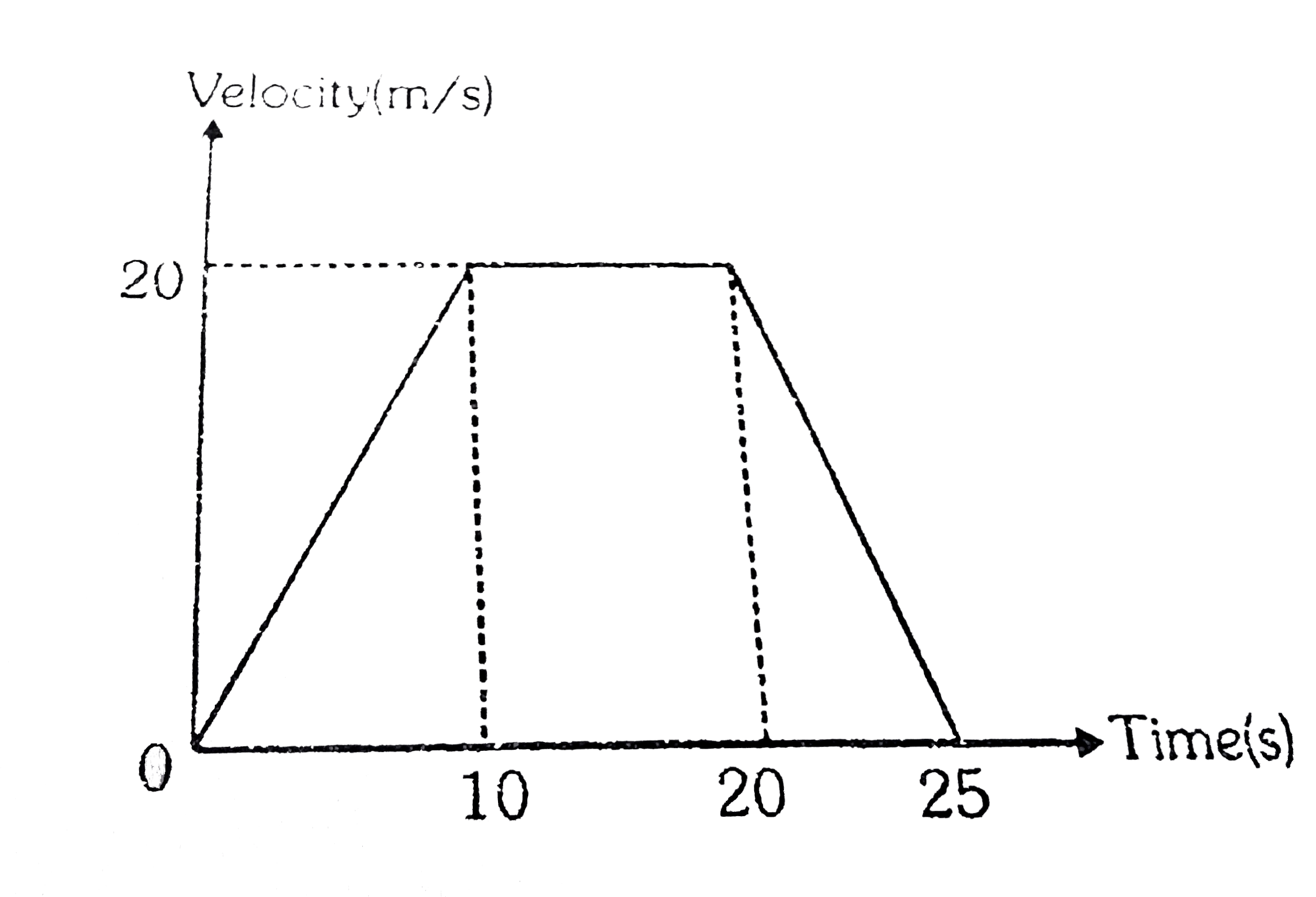 A20m/sB14m/sC10m/sD17.5m/s
A20m/sB14m/sC10m/sD17.5m/s - Question 1 - Select One
The velocity - time graph of a particle moving along a straight line is shown in the figure given below
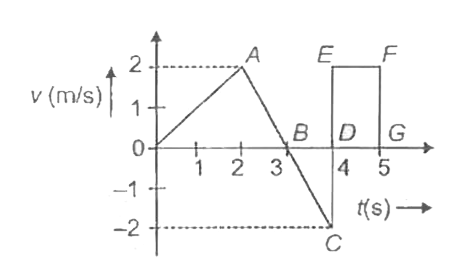
The displacement of the particle in 5 second isA0.5 mB1 mC2 mD4 m - Question 1 - Select One
For the displacement time graph shown in figure -1.100, the ratio of the speeds during the first two seconds and the next four second is :
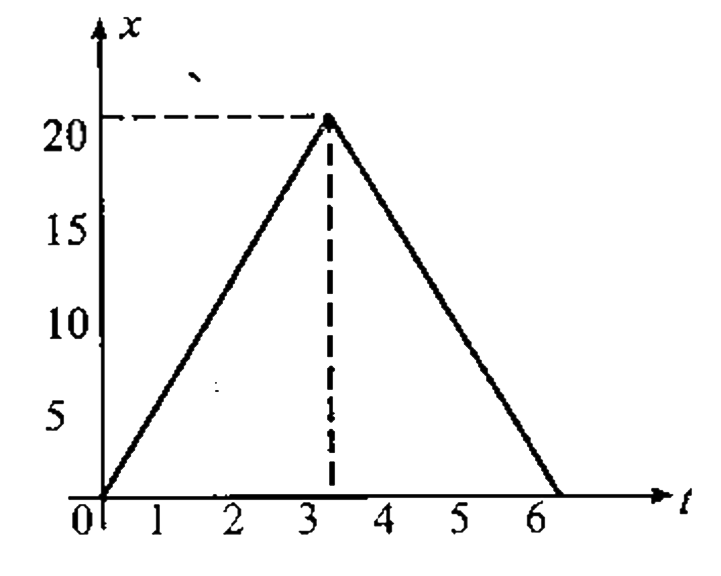 A1:1B1:2C2:1D3:2
A1:1B1:2C2:1D3:2 - Question 1 - Select One
For the displacement-time graph shown in figure, the ratio of the magnitudes of the speeds during the first two second and the next four second is
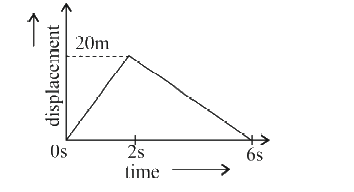 A1:1B2:1C1:2D3:2
A1:1B2:1C1:2D3:2
Similar Questions
The velocity - time graph of an ascending passenger order lift is given in figure. What is the acceleration of the lift:
(i) during the first two seconds ,
(ii) between 2nd and 10th second,
(iii) during the last two seconds. .
 View Solution
View SolutionVelocity time graph for a particle moving in a line is given.
Calculate the displacement of the particle and distance travelled in first 4 seconds.
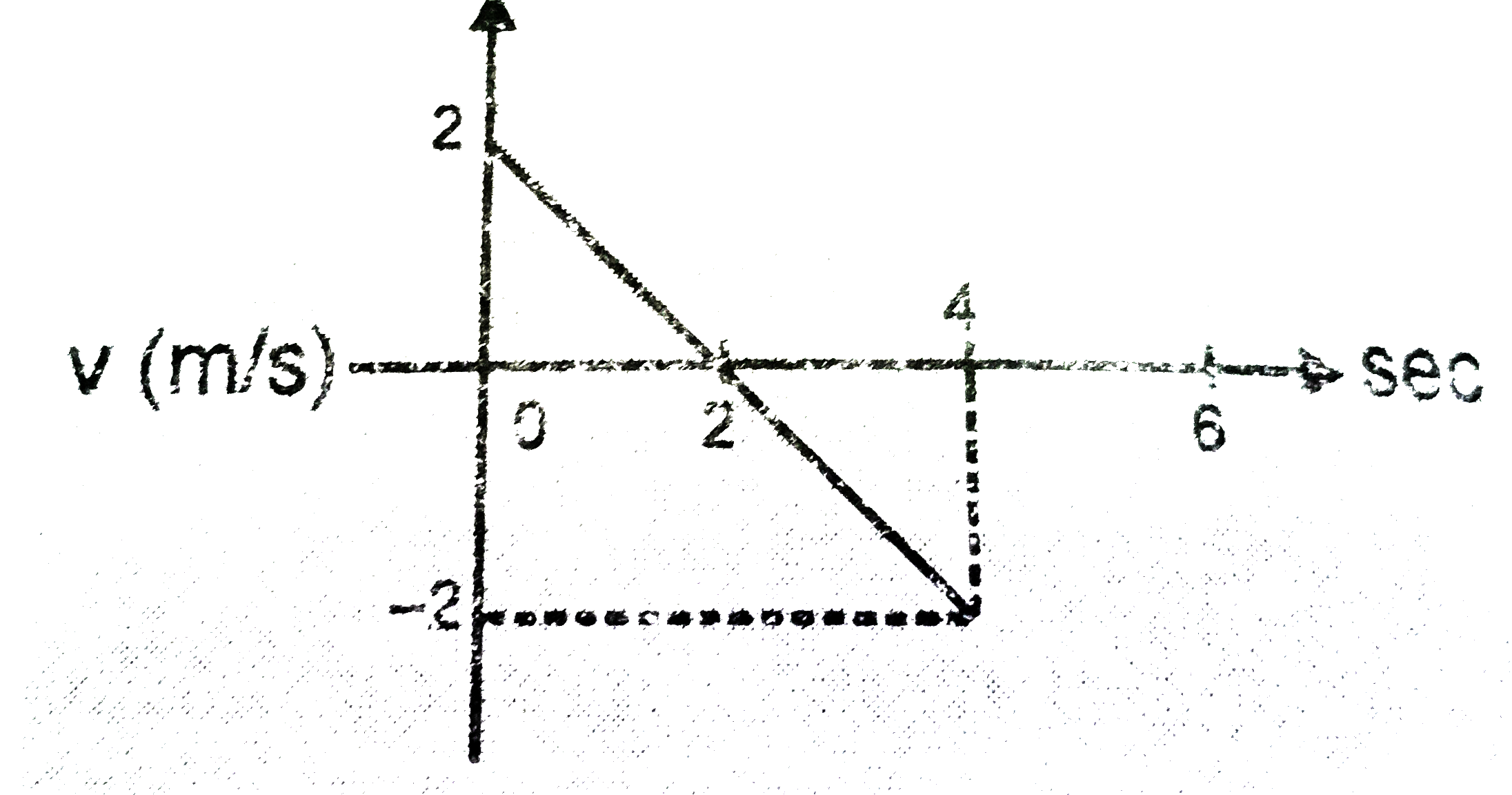 View Solution
View SolutionThe velocity-time graph of a particle moving along a straight line is shown in the figure-given below
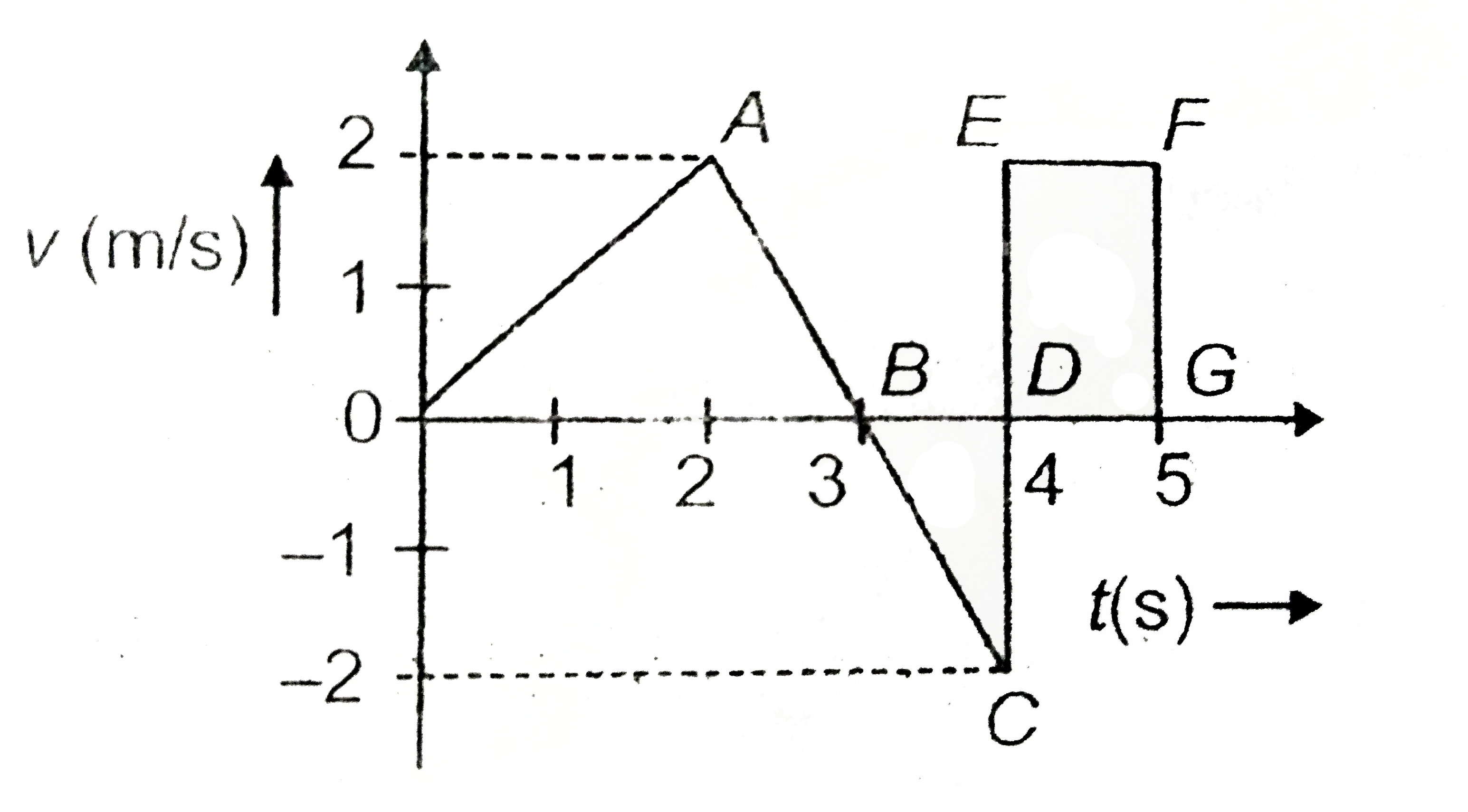
The displacement of the particle in 5 second isView SolutionThe velocity-time graph shows the motion of a cyclist. Find (i) its acceleration (ii) its velocity and (iii) the distance covered by the cyclist in 15 seconds.
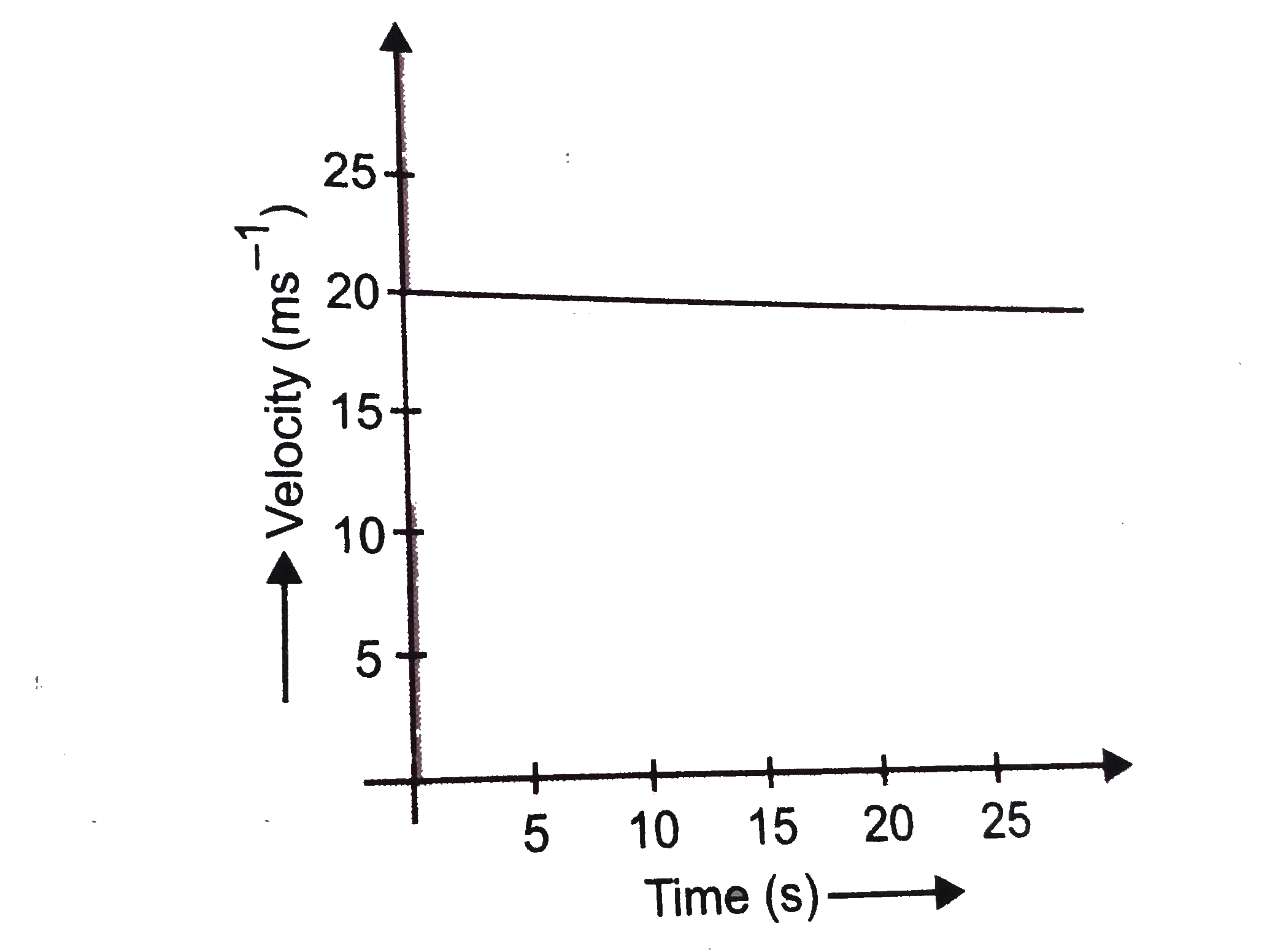 View Solution
View Solution

